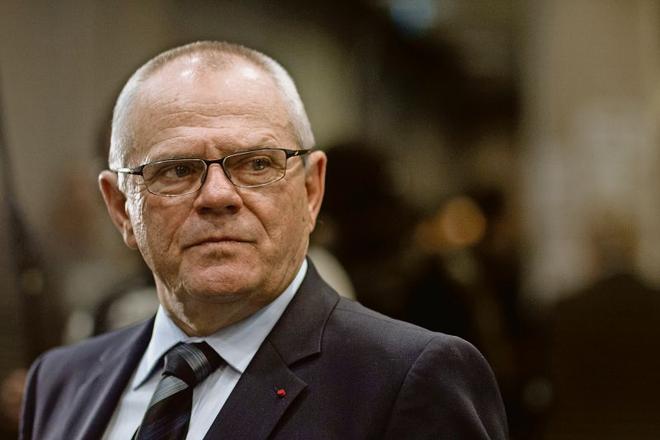IN BRATISLAVA the right-wing parties are uniting to challenge a Smer-backed incumbent and a number of other cities promise tight races, but there are more than 500 municipalities where the November 15 elections are a mere formality because there is only one candidate. A number of villages will elect no mayor at all, because no one is running for office.
Slovaks will select their mayors and members of municipal parliaments of more than 2,900 municipalities including 138 towns and cities. The candidate lists were closed on September 21 and the election campaign officially started on October 29, but unofficially campaigning started much earlier with hundreds of billboards being placed around cities and towns. The campaign will end on November 13, which is 48 hours before the actual vote when a campaign moratorium goes into effect.
It is already clear that in 18 villages the vote will have to be repeated due to the disinterest of candidates, according to the Sme daily. This disinterest in a number of municipalities is partly due to empty public coffers while according to observers, the large fragmentation of municipalities in Slovakia sometimes means local government appears a mere formality.
Predictably, the most watched races are expected in Bratislava, Banská Bystrica and Košice. The ruling Smer nominated strong candidates in each of the eight regional capital cities while the disunited opposition parties are also struggling with a strategy of unification for the races.
The Bratislava race
Milan Kňažko, a former actor who played a key role in the 1989 Velvet Revolution, has become the joint mayoral candidate of the right wing in Bratislava after three members of the so-called Right Coalition backed him in order to increase the chances of deposing sitting mayor Milan Ftáčnik who enjoys the support of Smer, Sieť leader Radoslav Procházka said at a press conference on October 28.
Originally, Sieť nominated Tatiana Kratochvílová, who is abandoning the race following a meeting of the Right Coalition on October 27. However, while Sieť, Slovak Democratic and Christian Union (SDKÚ) and Most-Híd have voiced support for Kňažko, another member, Freedom and Solidarity (SaS), has refused to do so because of Kňažko’s ambiguous stance when it came to supporting Andrej Kiska ahead of the presidential election run-off against Prime Minister Robert Fico in March.
Kňažko started toying with running for the mayoral post after placing fourth in the first round of the March 15 presidential race, when he garnered a little less than 13 percent of the vote. Kňažko won the presidential vote in the capital with 54,719 votes.
However, Kňažko fuelled criticism among his supporters after he failed to show up at a pre-agreed press conference where he and Procházka were supposed to express support for Kiska.
For his part, Procházka now speaks as though Sieť was the main challenger to the governing Smer. He said his party feels responsibility for the fact that “rightist voters deserve a victory”.
Procházka is withdrawing Kratochvílová after a poll conducted by the MVK agency between October 9 and 14 suggested that Kňažko, an independent supported by the Christian Democratic Movement (KDH), would win the Bratislava mayoral race with 34.4 percent.
According to the poll Mayor Milan Ftáčnik, supported by the ruling Smer party, would finish second with 33 percent, and Ivo Nesrovnal, an independent, at 17.6 percent. Kratochvílová backed by Sieť, SDKÚ, Most-Híd and SaS would have picked up only 7.6 percent of votes.
Kňažko himself at the press conference stated that he was glad that the right-leaning parties have come to an agreement in order not to divide the votes of the right among too many candidates, which would help Ftáčnik.
“I would also like to thank Mrs Kratochvílová who has shown by her gesture that when she talks about a change in the capital city, that’s no empty gesture,” said Kňažko, according to TASR. Kratochvílová herself was not present at the press conference.
Ftáčnik indeed launched a petition to collect signatures to back his candidacy and thus he claims being an independent and civic candidate, however he is running with the support of Smer.
Košice
In the Košice race Rudolf Bauer, a former mayor, is backed by KDH, SDKÚ, NOVA, SaS, the Party of Hungarian Community (SMK), Conservative Democrats of Slovakia, the Civic Conservative party (OKS), the Democratic Party and the Ordinary People and Independent Personalities (OĽaNO) and Alena Bašistová is backed by Sieť and Most-Híd.
Smer supports the incumbent mayor Richard Raši, a regular member of Smer who once served as health minister.
Four years ago, the right wing, namely KDH, SDKÚ, SMK, OKS and SZS supported František Knapík to face Raši, back then backed by Smer and Most-Híd. Raši harvested 23,000 votes while Knapík picked up 21,000.



 Milan Kňažko (source: Sme)
Milan Kňažko (source: Sme)